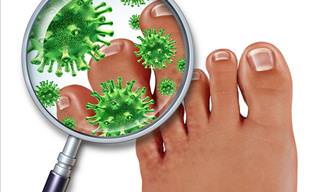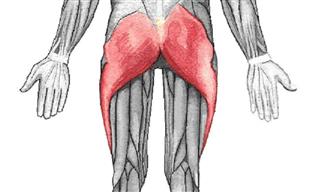Cases of colon and rectal cancer have been on the rise in young adults for a while now and the median age of patients diagnosed with the disease appears to be getting lower. Many might not be aware that colon and rectal cancer, known as colorectal cancers collectively, might be more common than you think. They are the third most common type of cancer in men and women and it is estimated that nearly 50,000 deaths per year are caused by colorectal cancer.
According to a report by the American Cancer Society, colorectal cancer cases among those under 50 have been increasing since the 1990s. Experts suggest regular screening for colon and rectal cancer from age 45. For better safety, however, it is important to be aware of the signs and symptoms of colorectal cancer. The symptoms of this cancer depend on its location, how advanced it is, and how it impacts the organs and tissues.
It is important to note that one sign or symptom may not be enough to determine the cause. Also, the symptoms of colorectal cancer, at times, may not show up until cancer has advanced. However, there are a few common symptoms of the disease which, if detected early, can help avoid a late-stage cancer diagnosis.
Many of these symptoms can be overlooked, but they may be a sign of the dangerous disease. Hence, understanding the symptoms properly and regular examinations with a doctor are essential. Let’s now take a look at the signs and symptoms of colon cancer you shouldn’t ignore.
1. Abdominal discomfort

Many people experience abdominal pain at some point in their lives. Like many other symptoms, it can often be mild and can be caused by a number of conditions, including diet-related gastrointestinal distress. However, if the abdominal discomfort and cramps began recently and are persistent, then it might be a warning sign.
Since colon cancer occurs in the large intestine, it can affect your bowel habits and cause you to feel discomfort in your abdominal region. Many colon cancer patients experience these symptoms that are generally brought upon after eating something.
Thus, cramping, bloating and abdominal pain could be an indicator of colon cancer.
See Also: Suffer From Digestive Issues? Try Natural Colon Cleansing
2. Unexplained weight loss

Unexplained and sudden weight loss can be a sign of various types of cancer, including colon cancer. If you have lost 10 pounds (4.5 kg) or more in six months or less without knowing the reason, then that can be categorized as unintentional and unexpected weight loss. Colon cancer can lead to unexplained weight loss in a variety of ways.
Cancer cells consume a lot of the body’s energy supply. Our immune system uses energy to try to fight the disease. Furthermore, cancer cells can discharge substances into the body that alter the way food is converted to energy. This can consequently lead to steady weight loss.
Also, if a tumor in the colon gets large enough, it could block the colon. This blockage could interfere with digestion and also impact a person’s bowel habits, leading to a decrease in food intake and unexplained weight loss.
See Also: 9 Warning Signs of Cancer We All Need to Know
3. Fatigue and weakness

See Also: These 8 Diseases Have Fatigue As the Main Symptom
Fatigue or weakness can be easily confused with being tired. All of us feel exhausted and weary at times and that’s okay. However, if the exhaustion does not go away with rest, it could be fatigue and a sign of colorectal cancer, especially if it coexists with other symptoms. In fact, doctors say that cancer-related fatigue is one of the most common side effects of colorectal cancer.
Similar to unexplained weight loss, cancer cells can cause fatigue as well by using up the body’s energy. Colon cancer can also cause internal bleeding in the colon, which can eventually lead to fatigue and weakness.
Usually, the fatigue and weariness come on suddenly and are not predictable by tumor type, treatment, or stage of illness. Hence, if you notice sudden weakness or fatigue that is not relieved by rest or sleep it would be a good idea to consult a doctor.
4. Blood in stool

If you notice blood in your stool, then that could be a warning sign for colon or rectal cancer. Sometimes you may notice bright red spots, and on other occasions, your stool might have marks that are invisible to the naked eye. In many cases, stool could also appear very dark or black, indicating the presence of dried blood.
According to the American Cancer Society (ACS), "Colorectal cancers can often bleed into the digestive tract. Sometimes the blood can be seen in the stool or make it look darker, but often the stool looks normal."
If you notice these symptoms, then it would be best to first get a blood test done that can disclose a low red blood cell count in the early stages of the cancer's development. Additional examinations can then help your doctor determine the source of the blood and the future course of action.
5. Change in stool consistency
Colon cancer can also impede the large intestine’s ability to perform its usual functions, like clearing the body of waste and absorbing water and nutrients. Patients usually notice significant changes in their stool, including darkened color, mellowed consistency, or a more "narrow" shape. If you observe these drastic changes in your stool consistency, then it might be an indication that something isn’t quite right.
Furthermore, loose, watery stools, diarrhea, or constipation that is not connected to any other prevalent condition, could be a symptom of colon cancer, too.
6. Bowel doesn't empty completely
Have you ever had the feeling that your bowels don’t feel completely empty even though there is nothing left to expel? Many patients describe this feeling as though their bowels aren't relieved even by actually going. Moreover, it takes longer for them to go. This condition is generally known as rectal tenesmus, or tenesmus, and can be caused by a variety of factors, including colorectal cancer. Tenesmus can hence be a sign of a blockage due to a cancerous tumor.
Tenesmus can be painful if you already have other digestive symptoms. The symptoms can come and go but if you are having them regularly, it's especially important to get yourself properly examined.
7. A consistent change in bowel habits
A colon polyp is a small clump of cells that forms on the lining of the colon or rectum. This polyp can develop into cancer over time and once it does, the slow growth of the tumor can affect bowel habits. Thus, if you noticed a marked change in the frequency of your bowel movements or your stool becoming thinner, it could be a sign of colon cancer.
"Constipation or diarrhea that lasts longer than a week may indicate the presence of a large colon polyp," according to the Mayo Clinic.
Share this post with your family and friends...
 Go to BabaMail
Go to BabaMail






























